CIMA - C2 Fundamentals of Financial Accounting
Подождите немного. Документ загружается.

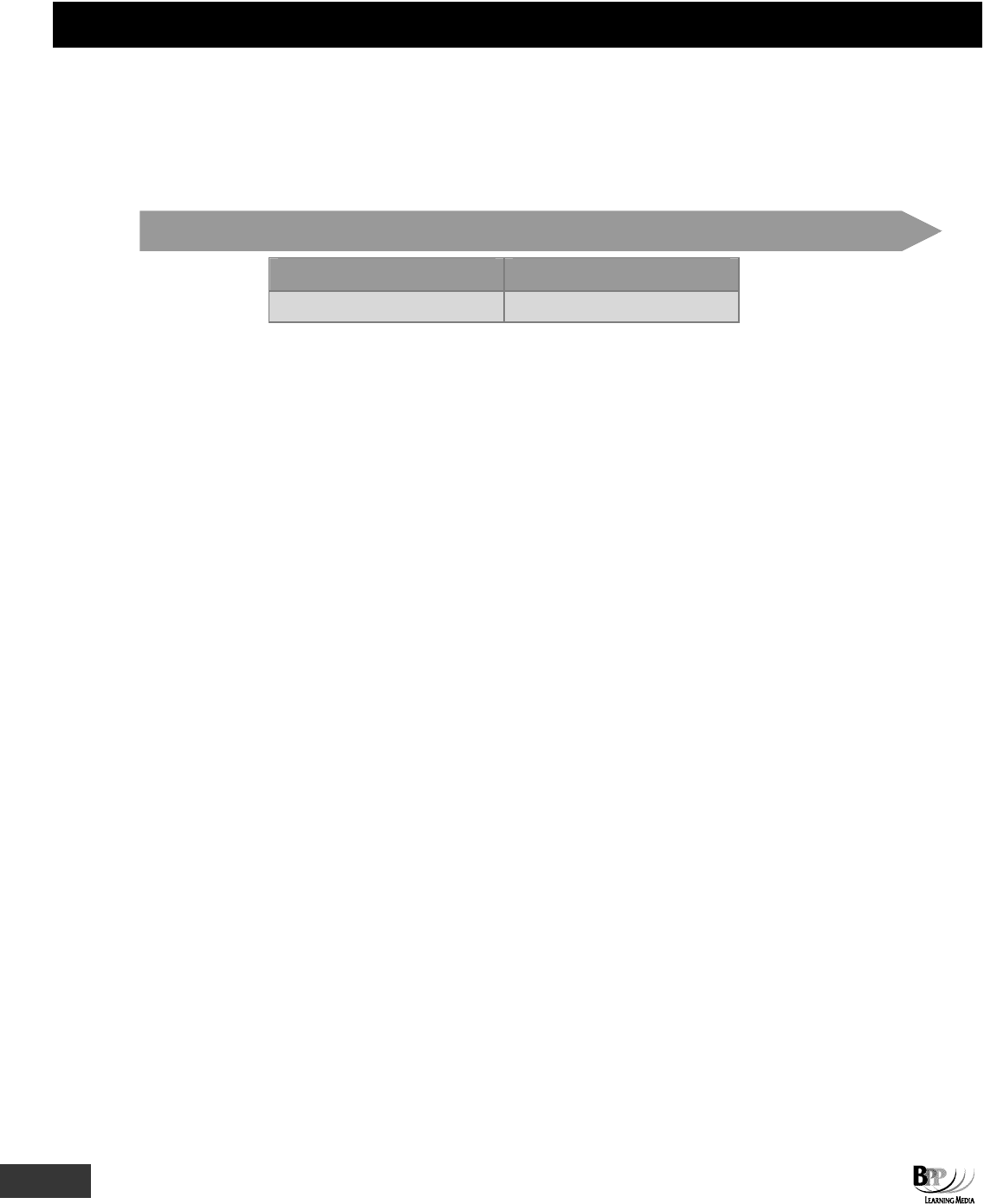
320 21: Manufacturing accounts ⏐ Part C Final accounts and audit
Answers to quick quiz
1 A Correct.
B Incorrect, no adjustment for work in progress has been made.
C This excludes production overheads.
D Prime cost has already been adjusted for changes in raw material inventory levels.
2 D Not part of prime cost.
Now try the questions below from the Question Bank
Question numbers Page
94–95 409
341465 www.ebooks2000.blogspot.com

321
Topic list Syllabus references
1 The regulatory framework of accounts A (6)
The regulatory
system
Introduction
This chapter looks at the regulatory framework within which accounts, particularly those of
limited liability companies, are prepared. The purpose of this section is to impress upon you
the importance of this framework, which is to be studied in much more detail in the later
stages of your qualification.
342465 www.ebooks2000.blogspot.com
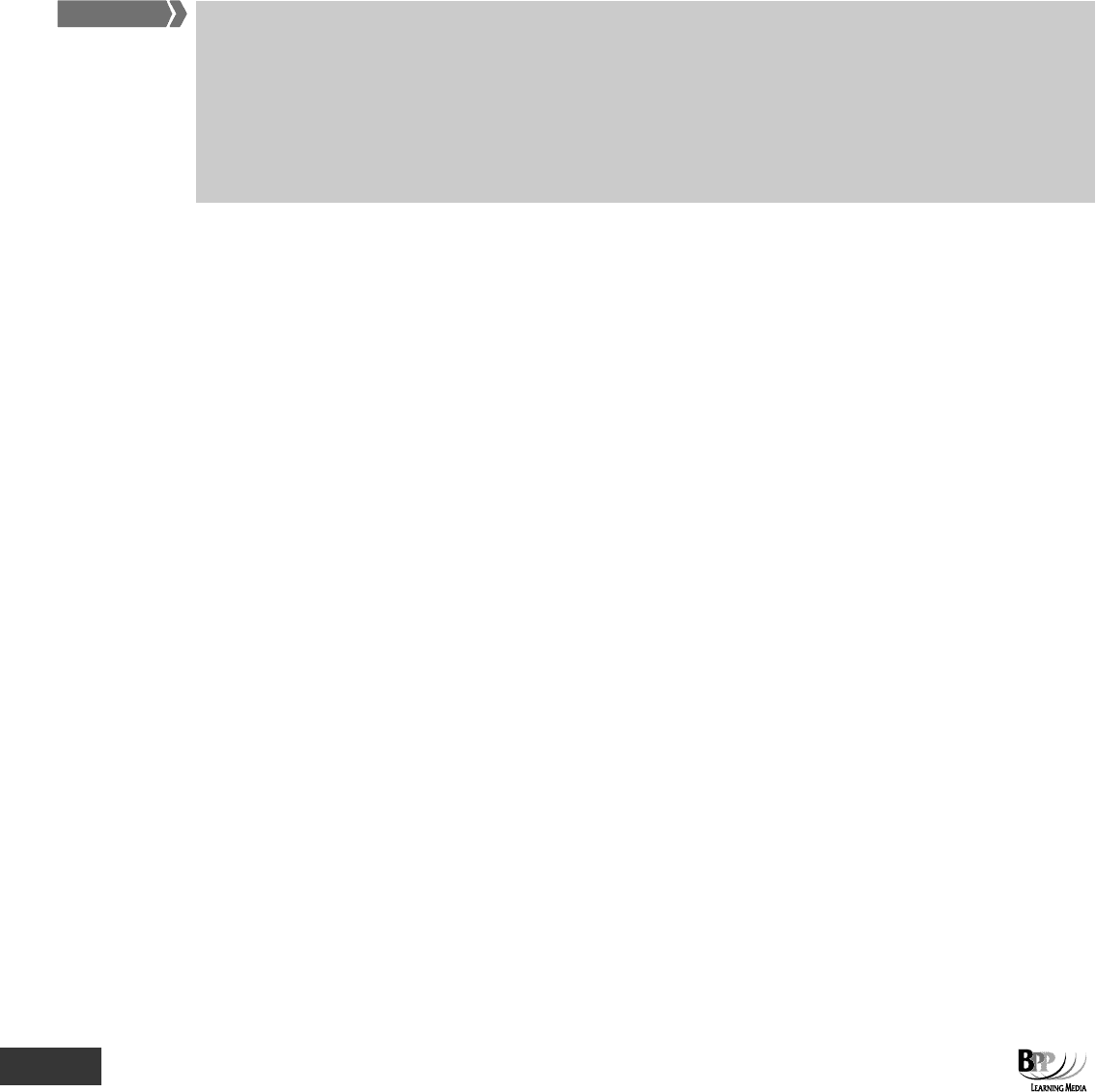
322 22: The regulatory system ⏐ Part C Final accounts and audit
1 The regulatory framework of accounts
There is a wide range of accounting concepts in use. There are also different conventions under which accounts can be
prepared. It may seem as though almost anything goes. What rules are there?
For an unincorporated business, any form of accounting information is adequate if it gives the owner(s) of the business
a basis for planning and control, and satisfies the requirements of external users such as the tax authorities.
The activities of limited liability companies, including the way they prepare their accounts, are closely regulated.
The regulations on accounts come from four main sources.
• Company law enacted by Parliament
• Financial Reporting Standards issued by the Accounting Standards Board
• International Accounting Standards and International Financial Reporting Standards issued by the International
Accounting Standards Board
• For quoted companies, the requirements of the Stock Exchange
1.1 Company law
Limited liability companies are required by law to prepare accounts annually for distribution to their shareholders. In the
UK, a copy of these accounts must be lodged with the Registrar of Companies and is available for inspection by any
member of the public. For this reason a company's statutory annual accounts are often referred to as its published
accounts.
In 2006, all existing companies legislation was brought together in a consolidating Act, the Companies Act 2006 (CA
2006).
There are many differences between accounting systems found in the various European Union (EU) member states. For
example, in the UK a 'true and fair view' is sought, whereas in West Germany a 'legal and correct view' is observed.
Taxation and accounting principles differ and consolidation practices vary.
Since the United Kingdom became a member of the EU it has been obliged to comply with legal requirements decided on
by the EU. It does this by enacting UK laws to implement EU directives. For example, the CA 1989 was enacted in part to
implement the provisions of the seventh and eighth EU directives, which deal with consolidated accounts (for groups of
companies) and auditors.
As far as the preparation of accounts is concerned, the overriding requirement of companies legislation is that accounts
should show a 'true and fair view'. This phrase is not defined in the Companies Acts. What it certainly does not mean is
that company accounts are to be exact to the penny. For one thing, many of the figures appearing in a set of accounts
are arrived at partly by the exercise of judgement. For another, the amount of time and effort that such a requirement
would cost would be out of all proportion to the advantages derived from it (see the discussion earlier in this chapter of
the materiality concept).
The legislation also requires that the accounts of a limited liability company (except certain small companies) must be
audited. An audit, for this purpose, may be defined as an 'independent examination of, and expression of opinion on, the
financial statements of an enterprise'.
This means that a limited liability company must engage a firm of chartered or certified accountants to conduct an
examination of its accounting records and its financial statements in order to form an opinion as to whether the accounts
present a 'true and fair view'. At the conclusion of their audit, the auditors issue a report (addressed to the owners of the
company, ie its members or shareholders) which is published as part of the accounts.
FA
S
T F
O
RWAR
D
343465 www.ebooks2000.blogspot.com
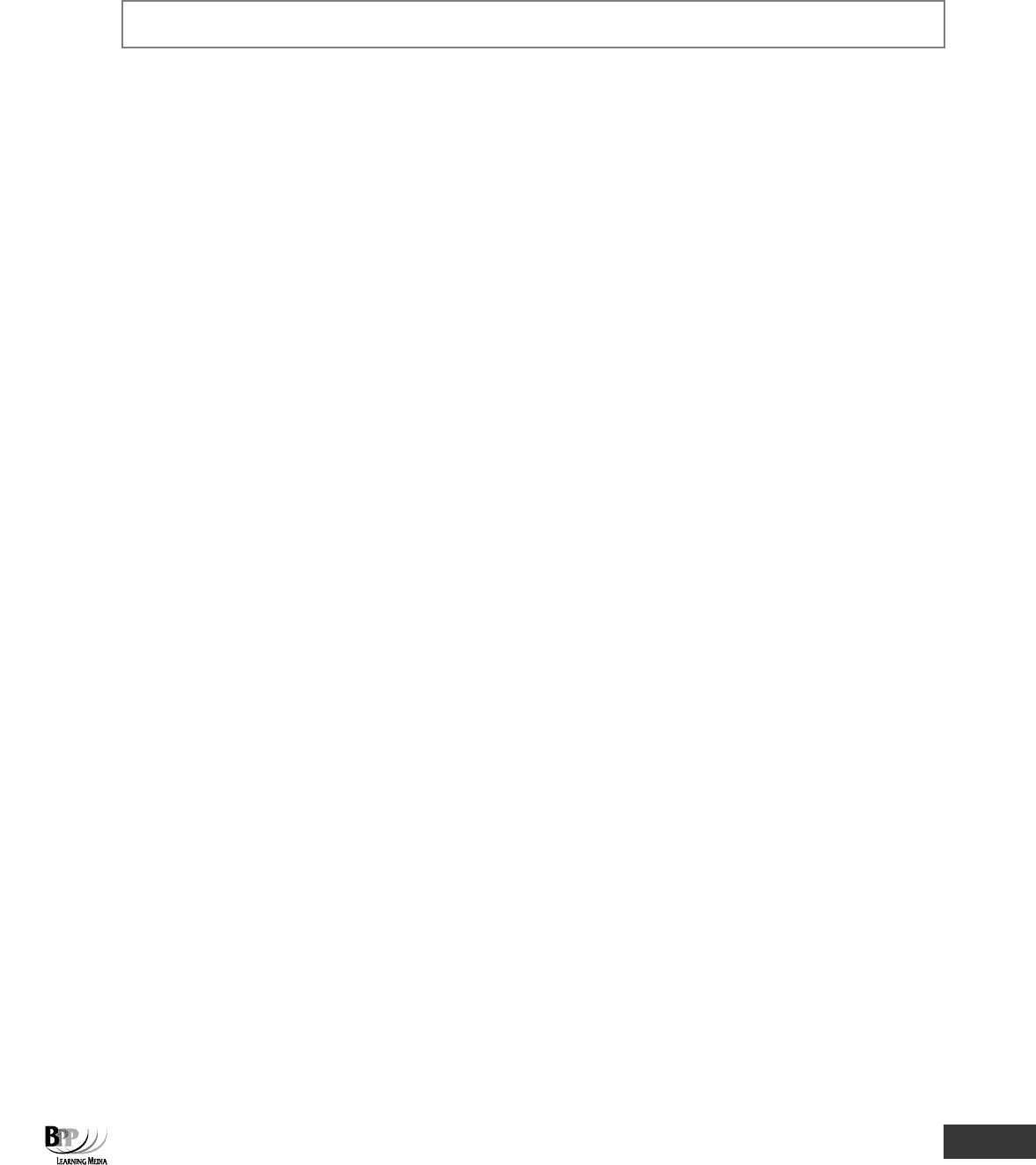
Part C Final accounts and audit ⏐ 22: The regulatory system 323
Audit is discussed in more detail in Chapter 23 of this Study Text. Note that under International Financial Reporting
Standards, a 'true and fair view' is called 'fair presentation'.
Do not neglect the role of auditors in the regulatory system.
1.2 Non-statutory regulation
Apart from company law, the main regulations affecting accounts in the UK derive from pronouncements issued by the
accounting profession. Six accountancy bodies in the UK are represented on the Consultative Committee of Accountancy
Bodies (CCAB). They are as follows.
• The Chartered Institute of Management Accountants (CIMA)
• The Institute of Chartered Accountants in England and Wales (ICAEW)
• The Institute of Chartered Accountants of Scotland (ICAS)
• The Institute of Chartered Accountants in Ireland (ICAI)
• The Association of Chartered Certified Accountants (ACCA)
• The Chartered Institute of Public Finance and Accountancy (CIPFA)
The CCAB is a major influence on the way in which accounts are prepared. Our main interest will be in the accounting
standards published to lay down accounting treatments in areas where a variety of approaches might be taken. The value
of accounts would be reduced if users were not able to count on a measure of comparability between them. The aim of
accounting standards is to ensure that such comparability exists.
To understand how standards are set there are four bodies you need to know about.
• The Financial Reporting Council (FRC)
• The Accounting Standards Board (ASB)
• The Financial Reporting Review Panel (FRRP)
• The Urgent Issues Task Force (UITF)
The Financial Reporting Council. The FRC draws its membership from a wide spectrum of accounts preparers and
users. Its chairman is appointed by the Government. The FRC operates through two arms: the FRRP and the ASB.
The Accounting Standards Board. The ASB is responsible for the issue of accounting standards. Accounting standards
issued by the ASB are called Financial Reporting Standard (FRSs), of which nineteen have so far been published. Prior
to August 1990 standards were issued by the Accounting Standards Committee (ASC, now abolished. These were known
as Statements of Standard Accounting Practice (SSAPs).
Prior to publication, the ASB circulates its proposals in the form of a financial reporting exposure draft (inevitably
referred to as a FRED) and invites comments. To avoid chaos, the ASB has 'adopted' those SSAPs still extant and they
therefore remain in force.
The Financial Reporting Review Panel. The FRRP is the second operating arm of the FRC. Its task is to examine
accounts published by companies if it appears that Companies Act requirements have been breached – in particular, the
requirement that accounts should show a true and fair view. The panel has legal backing: if a public company departs
from an accounting standard, the panel may apply to the courts, which may in turn instruct the company to prepare
revised accounts.
The Urgent Issues Task Force. The UITF is an offshoot of the ASB. Its role is to assist the ASB in areas where an
accounting standard or Companies Act provision already exists, but where unsatisfactory or conflicting interpretations
have developed. As its name suggests, the UITF is designed to act quickly (more quickly than the full standard-setting
process is capable of) when an authoritative ruling is urgently needed.
Assessment
focus point
344465 www.ebooks2000.blogspot.com
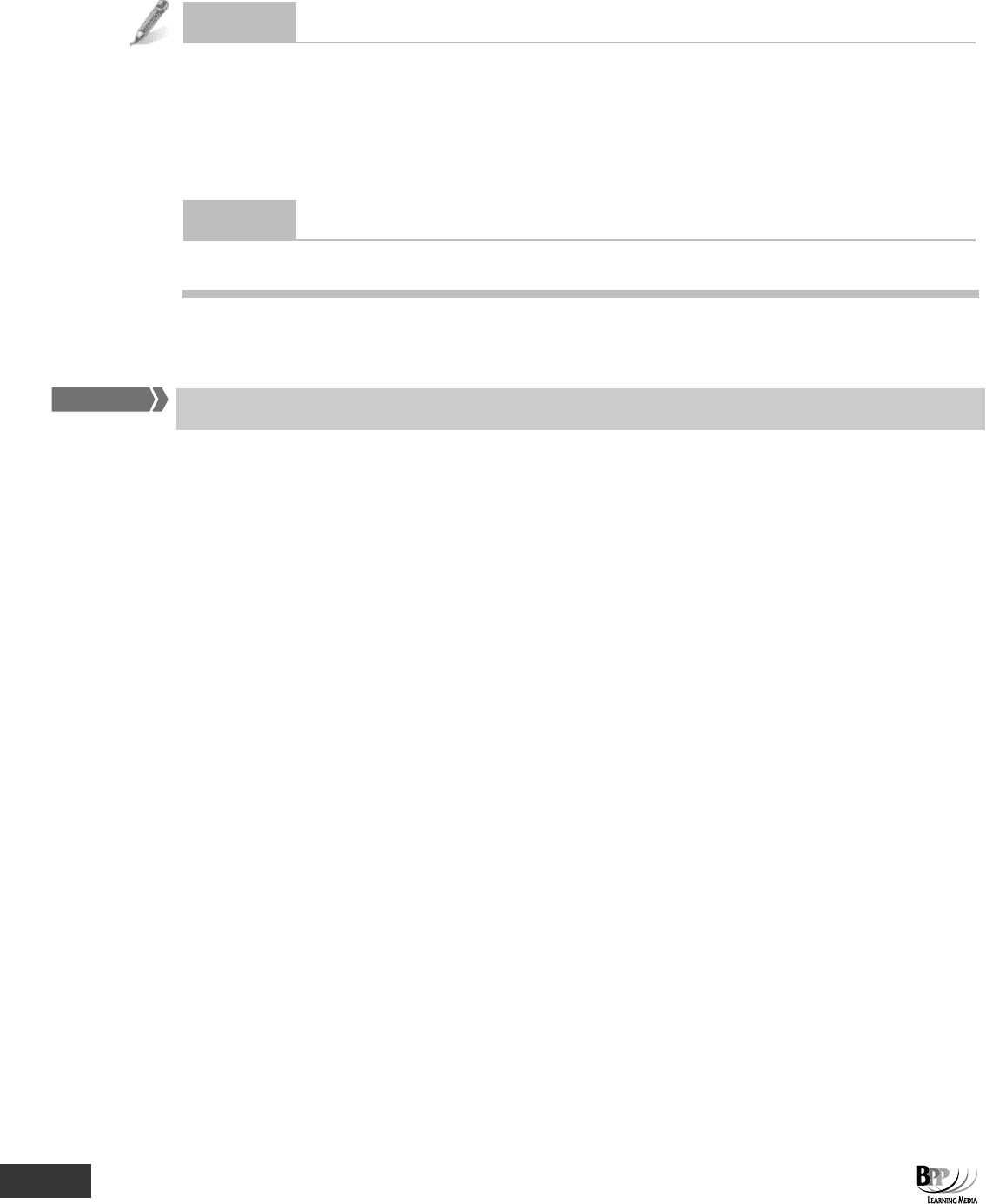
324 22: The regulatory system ⏐ Part C Final accounts and audit
Question
Non–statutory regulation
Which body is responsible for issuing UK Financial Reporting Standards?
A FRC
B ASB
C FRRP
D UITF
Answer
B The Accounting Standards Board is responsible for issuing UK standards.
1.3 International Financial Reporting Standards
From 1 January 2005 all listed EU companies have to report under IFRS for their consolidated accounts.
The International Accounting Standards Committee (IASC) was set up in June 1973 in an attempt to co-ordinate the
development of international accounting standards (IASs). It included representatives from many countries throughout
the world, including the USA and the UK. The IASC has since been superseded by the International Accounting
Standards Board (IASB) which issues International Financial Reporting Standards (IFRSs).
From 2005 UK listed companies have to report under IFRS for the preparation of their group accounts. During 2005 and
2006 most UK companies are expected to move over to complying with International Financial Reporting Standards
rather than UK Financial Reporting Standards. There is a glossary of international terms on page (xxiii).
1.4 IFRS 1: First-time adoption of International Financial Reporting Standards
The IASB would like to make the transition to international standards as smooth as possible and has recently issued its
first entirely new standard, IFRS 1 First-time adoption of International Financial Reporting Standards, which provides
guidance on how companies should implement IFRS.
Companies reporting under IFRS for the first time in 2005 should begin by preparing an opening statement of financial
position for 1 January 2004 (if their year end is 31 December) which is correct under IFRS. This may involve adjustments
for assets and liabilities which were recognised under the previous system (eg UK FRSs) but are not recognised under
IFRS, or vice versa.
They will then be able to prepare IFRS accounts for 2004 which will provide comparatives for their first full set of IFRS
accounts in 2005.
1.5 The Stock Exchange regulations
The Stock Exchange is a market for stocks and shares, and a company whose securities are traded in this market is
known as a 'quoted' or 'listed' company.
When a share is granted a quotation on The Stock Exchange, it appears on the 'Official List' which is published in London
each business day. The Official List shows the 'official quotation' or price for the share for that day. It is drawn up by the
Quotations Department of The Stock Exchange, which derives its prices from those actually ruling in the market.
In order to receive a quotation for its securities, a company must conform with Stock Exchange Listing Rules issued by
the Council of The Stock Exchange. The company commits itself to certain procedures and standards, including matters
FA
S
T F
O
RWAR
D
345465 www.ebooks2000.blogspot.com
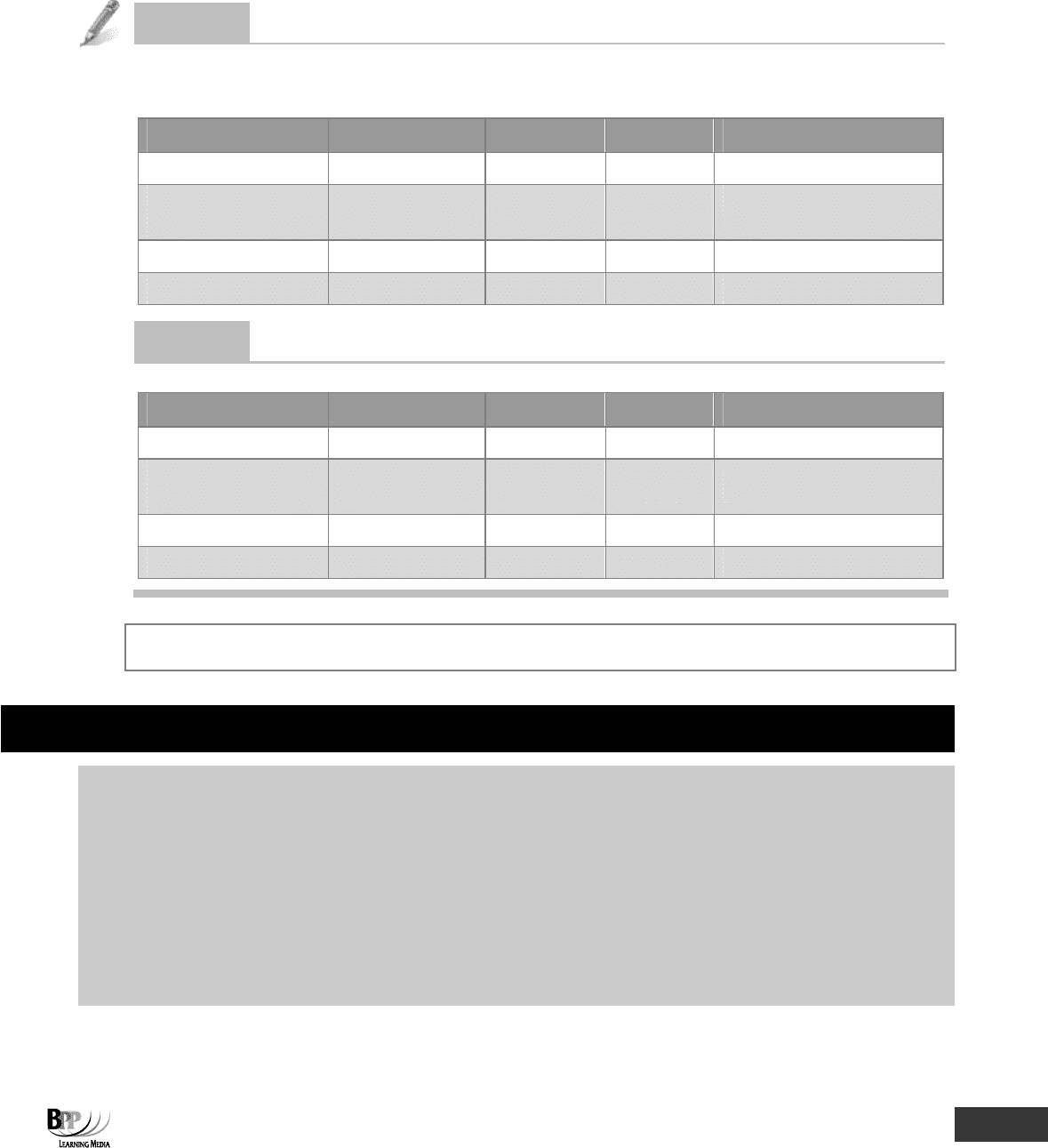
Part C Final accounts and audit ⏐ 22: The regulatory system 325
concerning the disclosure of accounting information, which are more extensive than the disclosure requirements of the
Companies Acts. These include issuing the annual report within six months of the year end and publishing an interim
report giving profit and loss information.
Question
The regulatory framework
To ensure you understand which regulations apply to which type of business, fill in the table below with a 'yes' where
compliance is required and 'no' where it is not.
Type of Business
Companies Act
FRSs/SSAPs
IFRSs/IASs
Stock Exchange Listing Rules
Public Listed Company
Public Listed Company –
group accounts
Private Limited Company
Sole Proprietorship
Answer
Type Of Business
Companies Act
FRSs/SSAPs
IFRSs/IASs
Stock Exchange Listing Rules
Public Listed Company YES YES NO YES
Public Listed Company –
group accounts
YES
NO
YES
YES
Private Limited Company YES YES NO NO
Sole Proprietorship
NO
NO
NO
NO
Make sure you learn the answers above
Chapter roundup
• The regulations on accounts come from four main sources.
– Company law enacted by Parliament
– Financial Reporting Standards issued by the Accounting Standards Board
– International Accounting Standards and International Financial Reporting Standards issued by the International
Accounting Standards Board
– For quoted companies, the requirements of the Stock Exchange
• From 1 January 2005 all listed EU companies have to report under IFRS for their consolidated accounts.
Assessment
focus point
346465
www.ebooks2000.blogspot.com
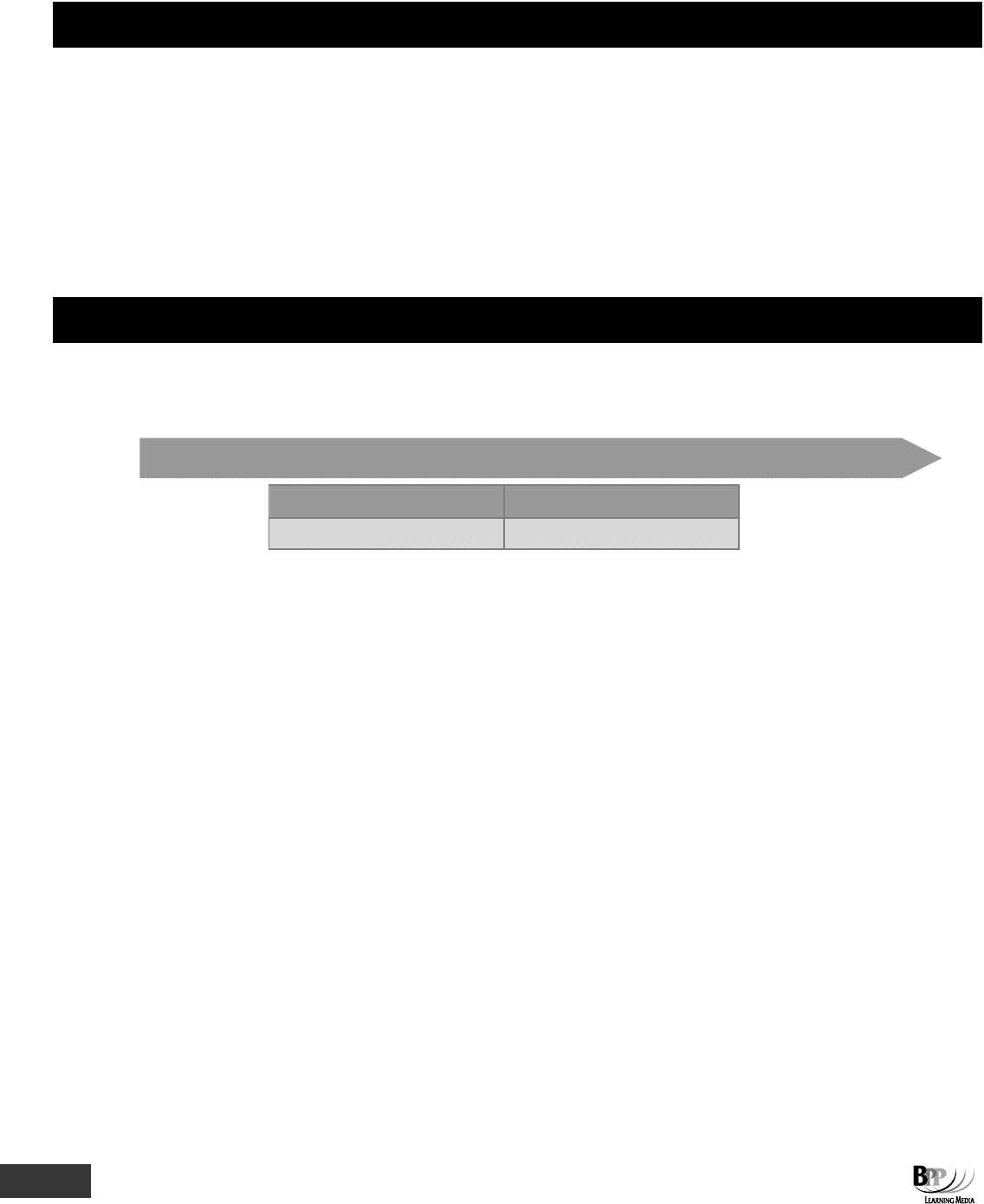
326 22: The regulatory system ⏐ Part C Final accounts and audit
Quick quiz
1 Fill in the blanks.
The main statute governing the content of limited liability company accounts in the UK is __________________
______________________________________________________.
2 What major change to UK financial reporting took place from 1 January 2005?
A All limited companies to use UK FRS in their accounts.
B All listed companies to use IFRS in their accounts.
C All listed companies to use UK FRS in their accounts.
D All listed companies to use IFRS in group accounts.
Answers to quick quiz
1 The main statute governing the content of limited liability company accounts in the UK is CA 2006.
2 D Since January 2005 listed companies have been required to prepare their group accounts to comply with IFRSs.
Now try the questions below from the Question Bank
Question numbers Page
96–100 409
347465 www.ebooks2000.blogspot.com
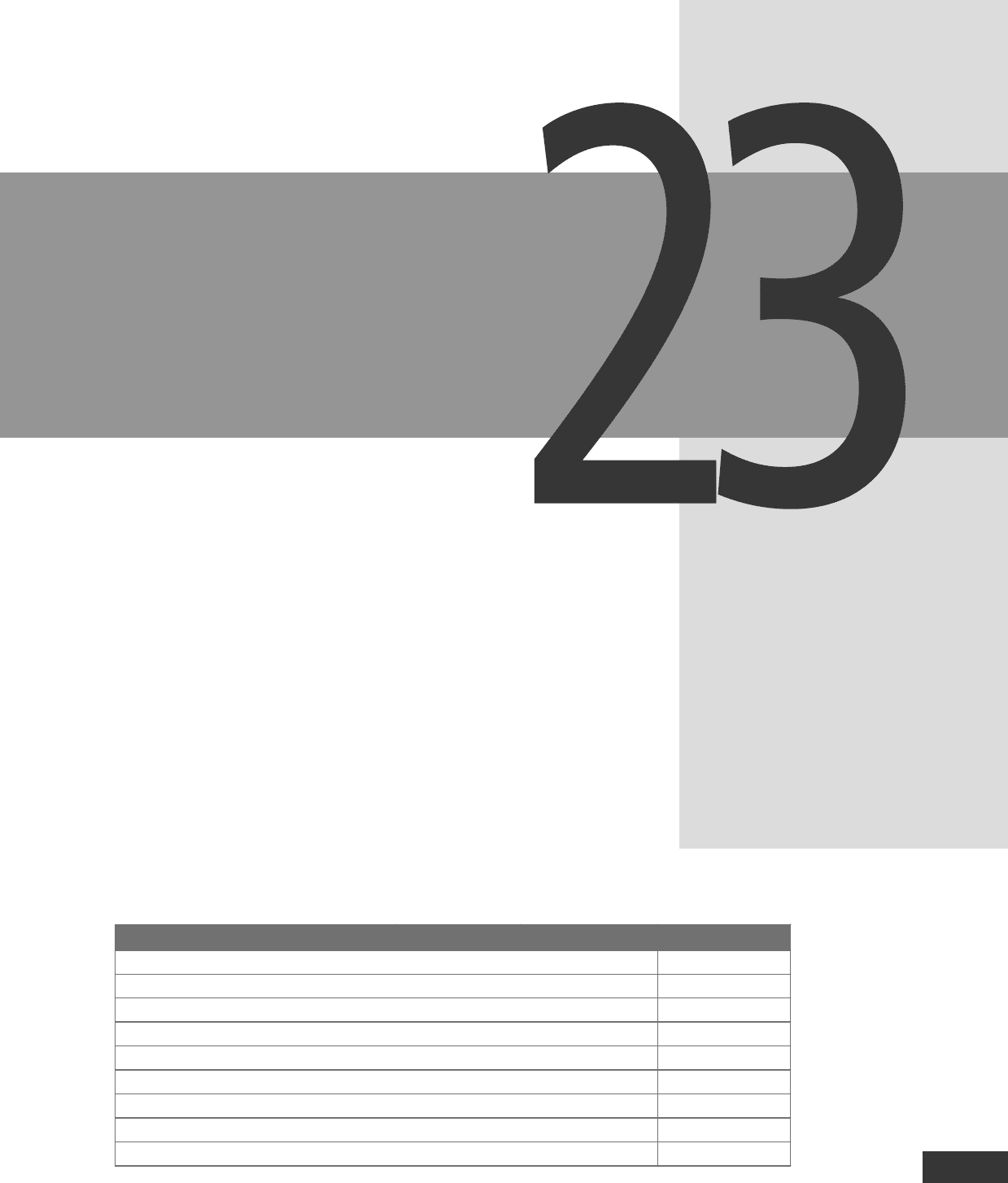
327
Topic list Syllabus references
1 Ownership v stewardship A (1)
2 External audit C (1)
3 Internal audit C (2)
4 Internal control C (3)
5 Controls over sales and receivables C (3)
6 Controls over purchases and payables C (3)
7 Evaluation of internal controls C (3)
8 Audit trail C (3)
9 The detection and prevention of fraud C (4)
Internal and external
audit
Introduction
So far you have been concerned with the preparation of accounts. The syllabus also includes
an appreciation of the purpose of external and internal audit.
It is a requirement of the Companies Act that all companies must appoint external auditors
who will report to the members of the company on whether in their opinion, the annual
statutory accounts give a true and fair view (or 'fair presentation'). The duties of the external
auditor are imposed by statute and cannot be limited, either by the directors or by the
members of the company. External auditors are not employees of the company.
Internal auditors are employees of the company whose duties are fixed by management, and
who report ultimately to management. In recent years it has become increasingly common
for large companies to set up internal audit departments and for the external auditors to alter
their audit approach to take account of the work done by the internal auditors.
348465 www.ebooks2000.blogspot.com
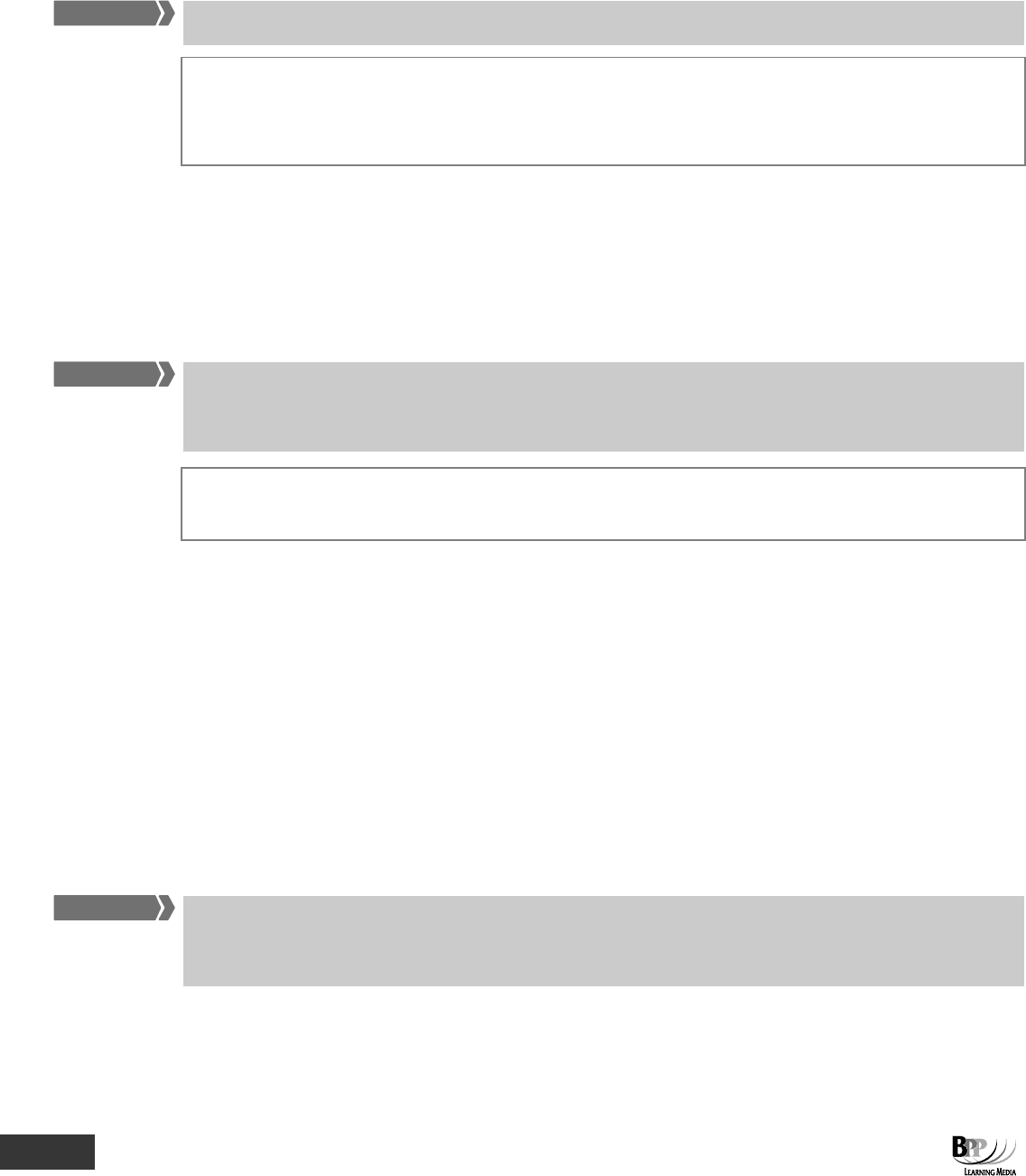
328 23: Internal and external audit ⏐ Part C Final accounts and audit
1 Ownership v stewardship
It is important to distinguish between ownership and stewardship.
Stewardship is the primary function of managers who are responsible for the running of the business on a day to day
basis; it means the safeguarding of the business' assets.
An audit assures proprietors that the stewardship of the organisation was effectively carried out.
The stewardship concept is wider than ensuring that the assets of an organisation are properly recorded, valued and
insured. It also includes the control of costs, the improvement of efficiency and the optimisation of profits. Additionally
whilst management
's stewardship responsibilities extend primarily to the owners of the business it also includes all
other users of the accounts.
2 External audit
External auditors report to the members of the company on whether, in their opinion, the annual statutory accounts give
a true and fair view. Their duties are imposed by statute and they are not employees of the company. Under International
Financial Reporting Standards, auditors report on 'fair presentation'.
An external audit is an independent examination of, and expression of opinion on the financial statements of an
enterprise.
2.1 The audit
If the 'enterprise' is a limited company, 'external audit' means statutory audit, that is, under the Companies Act 2006.
The statutory audit requirement, arose as discussed in Section 1, because of the separation of owners (shareholders)
and managers (directors).
External auditors are generally firms of chartered or certified accountants. They summarise their conclusions on the
company
's financial statements by issuing an audit report, addressed to the shareholders. The report must state whether
in the auditors opinion.
(a) The statement of financial position gives a true and fair view of the state of affairs of the company at the
end of the financial year.
(b) The income statement gives a true and fair view of the profit or loss of the company for the financial year.
(c) The financial statements have been properly prepared in accordance with the Companies Act.
'True and fair' is not defined in company law or accounting standards. The words are used together rather than
separately and the term is generally taken to mean 'reasonably accurate and free from bias or distortion'. Under IFRS, the
term is 'fair presentation'.
Although there is no official definition of 'true and fair', the Companies Act states that the directors may depart from any
provisions of company law or accounting standards if these are inconsistent with the requirement to give a true and fair
view. This
'true and fair override' has been treated as an important loophole in the law and has been the cause of much
argument and dissatisfaction within the accounting profession.
Key terms
Key term
FA
S
T F
O
RWAR
D
FA
S
T F
O
RWAR
D
FA
S
T F
O
RWAR
D
349465 www.ebooks2000.blogspot.com
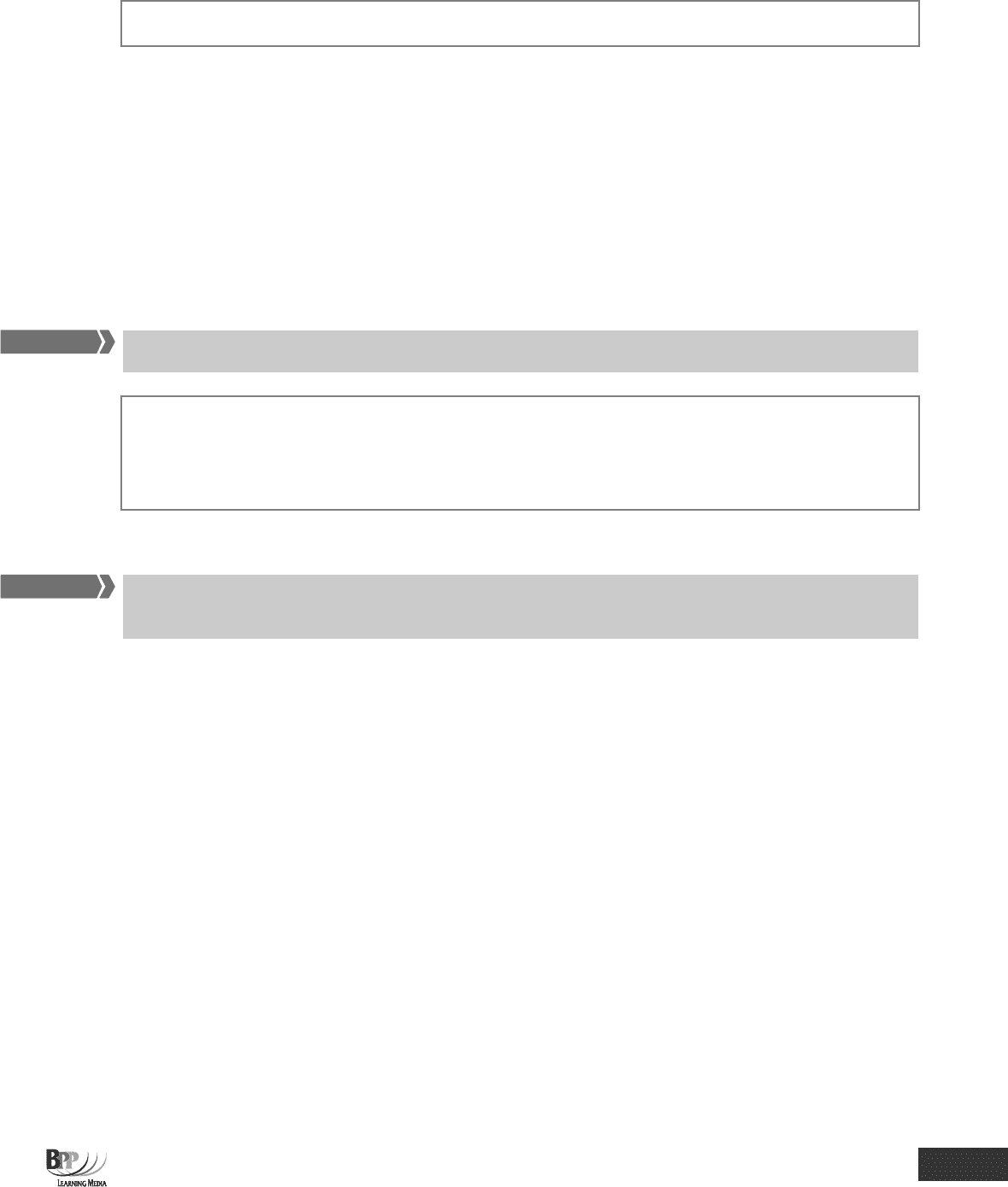
Part C Final accounts and audit ⏐ 23: Internal and external audit 329
Remember that a statutory audit is limited to the above aims. Auditors may also be asked to do other work.
2.2 Non-statutory audits
Non-statutory audits are performed by independent auditors because the owners, members, trustees, governing bodies
or other interested parties desire them, not because the law requires them. Auditing may therefore extend to any kind of
undertaking which produces accounts (eg clubs, sole traders, charities, partnerships), and may extend to forms of
financial statements other than the annual report and accounts. Examples include an audit of a statement of expenditure
in support of an application for a regional development grant, and a value for money audit to ensure that managers are
spending money wisely.
3 Internal audit
Internal auditors are employees of the company whose duties are fixed by management and who report to management.
'Internal auditing is an independent appraisal function established within an organisation to examine and evaluate its
activities as a service to the organisation. The objective of internal auditing is to assist members of the organisation in
the effective discharge of their responsibilities. To this end internal auditing furnishes them with analysis, appraisals,
recommendations, counsel and information concerning the activities reviewed.' (Institute of Internal Auditors)
3.1 Scope of internal audit
The scope of an internal audit varies widely and may range from systems review to implementation of corporate policies,
plans and processes.
The CIMA's Official Terminology defines an audit as a systematic examination of the activities and status of an entity
based primarily on investigation and analysis of its systems, controls and records. Internal audit is now defined as per
the Institute of Internal Auditors, and the CIMA
's own definition is currently:
'an independent appraisal function established within a organisation to examine and evaluate its activities as a service to
the organisation'.
Internal audit has a much wider scope than external audit. External auditors need only consider whether a company
's
accounts give a true and fair view of its financial position. They need not comment in their audit reports on ways in
which the company
's results or controls could be improved.
From the definitions of the internal audit the two main features of internal audit emerge.
(a) Independence. Although an internal audit department is part of an organisation, it should be independent
of the line management whose sphere of authority it may audit. The department should therefore report to
the board or to a special internal audit committee and not to the finance director. The reason for this is
best seen by thinking about what could happen if the internal audit department reported some kind of
irregularity to a finance director without realising that the finance director was actually involved. The
director would take the report and decide that it was all very interesting, but not worth pursuing. A very
different line might be taken by another, independent director!
It is also important that internal auditors should have appropriate scope in carrying out their
responsibilities, and unrestricted access to records, assets and personnel.
Key term
FA
S
T F
O
RWAR
D
FA
S
T F
O
RWAR
D
Assessment
focus point
350465 www.ebooks2000.blogspot.com
